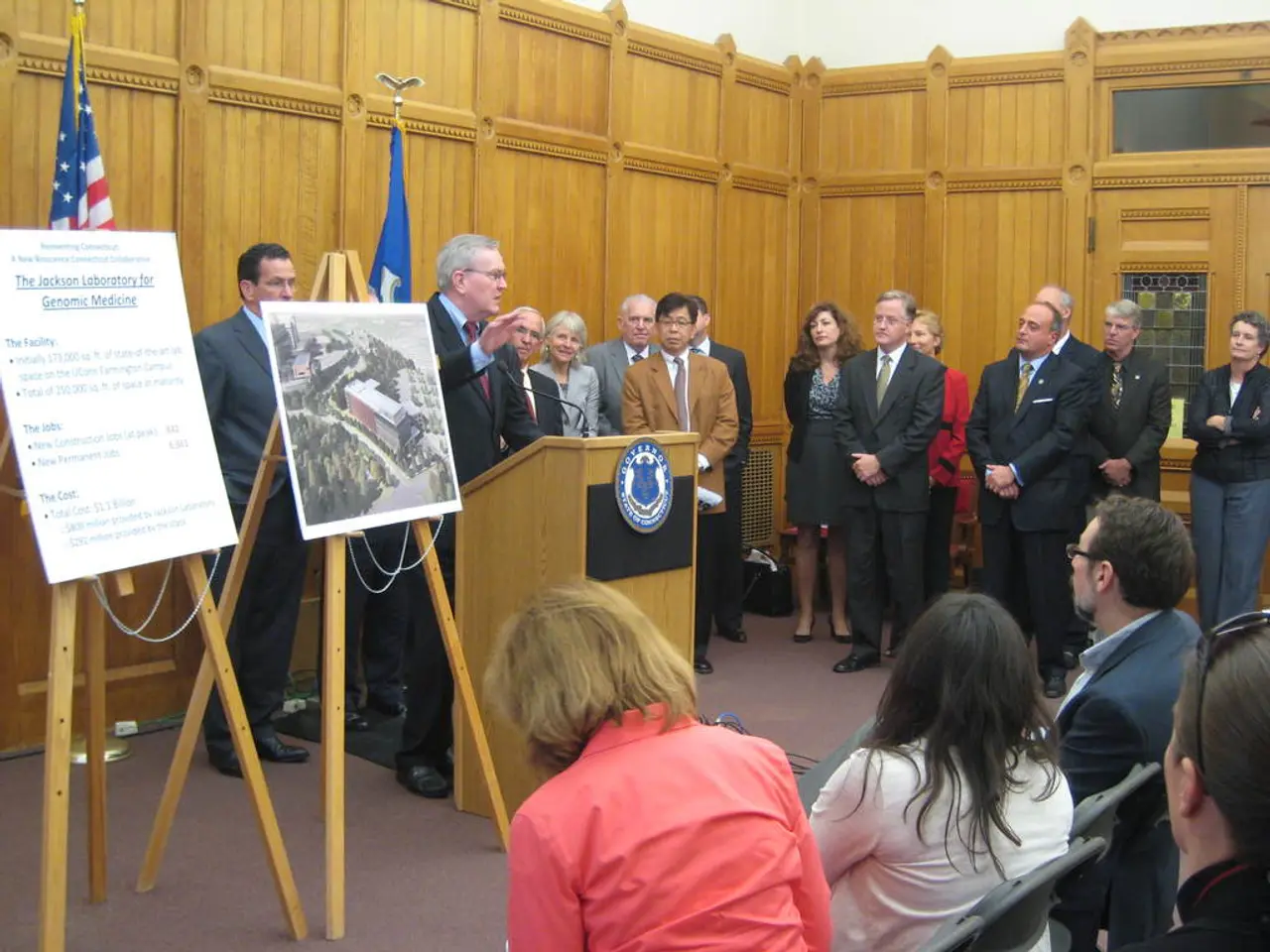Discussion on Political Preparation: Strategies for Acing Political Debates
In the arena of political debates, understanding the nuances of persuasive communication is crucial. Here are some key strategies to help you engage in effective and respectful debates with those holding different views.
A political debate is a discussion between two or more people about one or more topics, usually held to settle disagreements. It can be formal or informal, and is often held between candidates running for an election.
Effective strategies for engaging in respectful and persuasive political debate include using evidence-based arguments, maintaining a respectful tone, signaling a willingness to compromise, and actively listening to understand the other person's perspective. Employing "I" statements to share your views personally and asking curious, open-ended questions can also foster connection and reduce defensiveness.
Clear, evidence-based reasoning is paramount. Combining this with respectful communication and openness to compromise increases the likelihood of receiving similarly constructive replies and helps build a healthier discussion dynamic. Preparing for the debate by anticipating opposing claims and acknowledging potential flaws in your own argument can demonstrate your willingness to engage honestly and improve your credibility.
Improving public speaking skills for debate is also essential. Focus on voice projection, enunciation, confident posture, gestures, and making eye contact with the audience or camera. Balance confidence with humility by being assertive and factual while remaining respectful, acknowledging valid points from the opponent when appropriate.
Unexpected questions can be handled by staying calm, requesting clarification if needed, and using bridging techniques to steer back to prepared themes. Incorporate audience engagement by using rhetorical questions, analogies, visuals (if allowed), and addressing audience concerns directly.
It's important to remember that everyone has their own opinion, and respecting that is important when debating. The internet can be used to find facts and statistics that support your side in a political debate. Debatepedia is a great source of unbiased information for debate topics, giving examples of arguments, evidence, and counterarguments.
Avoid common mistakes such as personal attacks, overuse of jargon, being overly aggressive, ignoring time limits, or failing to address the question. Basic rules for argumentation in politics include avoiding ad hominem attacks, using evidence and logic, and being well-informed.
In summary, the most effective strategies are: - Use clear, evidence-based reasoning - Maintain respect and civility in tone - Signal openness to compromise and understanding - Actively listen and use open-ended questions - Acknowledge counterarguments and flaws in your position - View disagreement as valuable for insight rather than conflict - Use brief notes or cue cards for structure, but prioritize a conversational tone and avoid reading verbatim - Anticipate opponent's attacks and prepare rebuttals backed with facts and logic - Improve public speaking skills for debate - Engage the audience and address their concerns - Respect the opinions of others - Use unbiased sources for information - Follow basic rules for argumentation in politics
By following these strategies, you can transform debates into opportunities for learning and community building rather than conflict. Practice makes perfect, so don't forget to rehearse your delivery through mock debates and video rehearsals to improve tone, pacing, clarity, and body language. The purpose of a political debate is to persuade people to vote for one candidate over another, so make your conclusion a winning one by summarizing your position, emphasizing your strengths, and offering a compelling call to action.
- To gain support for one's political viewpoint, it's crucial to engage in informative blogs on education-and-self-development platforms, discussing policy-and-legislation matters with a focus on war-and-conflicts, while maintaining respect and civility in tone.
- By preparing arguments backed with evidence and avoiding common mistakes like personal attacks and ignoring time limits, one can engage effectively in formal political debates over general-news topics, resulting in constructive policy discussions.
- In essence, by utilizing reliable sources like Debatepedia for unbiased information, employing effective communication strategies, and practicing mock debates, politicians can convert debates into platforms for education, self-development, and community building.




